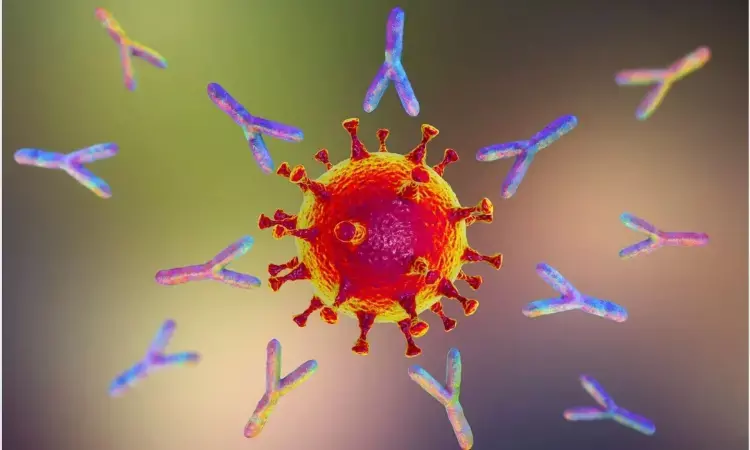- Home
- Medical news & Guidelines
- Anesthesiology
- Cardiology and CTVS
- Critical Care
- Dentistry
- Dermatology
- Diabetes and Endocrinology
- ENT
- Gastroenterology
- Medicine
- Nephrology
- Neurology
- Obstretics-Gynaecology
- Oncology
- Ophthalmology
- Orthopaedics
- Pediatrics-Neonatology
- Psychiatry
- Pulmonology
- Radiology
- Surgery
- Urology
- Laboratory Medicine
- Diet
- Nursing
- Paramedical
- Physiotherapy
- Health news
- Fact Check
- Bone Health Fact Check
- Brain Health Fact Check
- Cancer Related Fact Check
- Child Care Fact Check
- Dental and oral health fact check
- Diabetes and metabolic health fact check
- Diet and Nutrition Fact Check
- Eye and ENT Care Fact Check
- Fitness fact check
- Gut health fact check
- Heart health fact check
- Kidney health fact check
- Medical education fact check
- Men's health fact check
- Respiratory fact check
- Skin and hair care fact check
- Vaccine and Immunization fact check
- Women's health fact check
- AYUSH
- State News
- Andaman and Nicobar Islands
- Andhra Pradesh
- Arunachal Pradesh
- Assam
- Bihar
- Chandigarh
- Chattisgarh
- Dadra and Nagar Haveli
- Daman and Diu
- Delhi
- Goa
- Gujarat
- Haryana
- Himachal Pradesh
- Jammu & Kashmir
- Jharkhand
- Karnataka
- Kerala
- Ladakh
- Lakshadweep
- Madhya Pradesh
- Maharashtra
- Manipur
- Meghalaya
- Mizoram
- Nagaland
- Odisha
- Puducherry
- Punjab
- Rajasthan
- Sikkim
- Tamil Nadu
- Telangana
- Tripura
- Uttar Pradesh
- Uttrakhand
- West Bengal
- Medical Education
- Industry
Blood plasma proteins in may have a role in incidence of long Covid

Canada: In a recent study, published in the Journal of Translational Medicine, the researchers have discovered unique patterns of blood plasma in long COVID patients. This could reveal potential drug targets for improving patient outcomes.
“Patients with long COVID experience a wide variety of symptoms, which may include fatigue, brain fog and difficulty breathing,” says Dr. Douglas Fraser, Lawson Scientist and Critical Care Physician at London Health Sciences Centre (LHSC). “Their quality of life can be significantly altered, so anything that we can do to learn about this disorder and identify potential treatment targets is very important.”
Called “the plasma proteome,” the proteins being studied are found in blood plasma and are released by cells that often play an important role in the body’s immune response to viruses. The research team is studying how those proteins adapt and change in long COVID.
“Trying to understand this mechanism is quite important because it provides further insight into how patients are affected,” says Dr. Michael Nicholson, Associate Scientist at Lawson and Respirologist at St. Joseph’s Health Care London (St. Joseph’s). “This paper sheds further light onto several possible mechanisms that may provide insight into why some patients have certain symptoms.”
Currently, 10-20 per cent of people with a confirmed case of COVID-19 will be diagnosed with long COVID. As part of the study, blood plasma samples were collected from long COVID outpatients through the Post-Acute COVID-19 Program at St. Joseph’s and analyzed in comparison to acutely ill COVID-19 inpatients at London Health Sciences Centre (LHSC), as well as compared to a group of healthy volunteers.
“We used novel technologies for this study, allowing us to analyze more than 3,000 proteins in each patients’ blood plasma sample,” explains Cristiana Iosef, Research Analyst at Children’s Health Research Institute (CHRI), a program of Lawson. “We used novel bioinformatic pipeline, which uses artificial intelligence (AI) technology, to then analyze the proteins to determine the specific changes that occur in long COVID.”
By using advanced technology the researchers were able to determine unique signaling patterns from the blood proteins. The team discovered that people with long COVID have prolonged inflammation associated with changes in their immune cells and blood vessels. These changes may lead to problems in specific organs, like the brain and the heart.
Dr. Fraser, who is also a Professor at Western University, adds that the proteins discovered could serve as a future diagnostic test, as well as reveal potential drug targets. The team is now examining potential new drug therapies with the hopes of improving outcomes for these patients.
“When we identify these signaling patterns within the blood plasma, we can then take the information and screen drug databases to better understand which drugs would be best to target the changes we identified in long COVID patients,” says Dr. Fraser. “With this understanding, the identified drugs may be used in future long COVID clinical trials.”
Reference:
Iosef, C., Knauer, M.J., Nicholson, M. et al. Plasma proteome of Long-COVID patients indicates HIF-mediated vasculo-proliferative disease with impact on brain and heart function. J Transl Med 21, 377 (2023). https://doi.org/10.1186/s12967-023-04149-9.
Dr Kamal Kant Kohli-MBBS, DTCD- a chest specialist with more than 30 years of practice and a flair for writing clinical articles, Dr Kamal Kant Kohli joined Medical Dialogues as a Chief Editor of Medical News. Besides writing articles, as an editor, he proofreads and verifies all the medical content published on Medical Dialogues including those coming from journals, studies,medical conferences,guidelines etc. Email: drkohli@medicaldialogues.in. Contact no. 011-43720751


